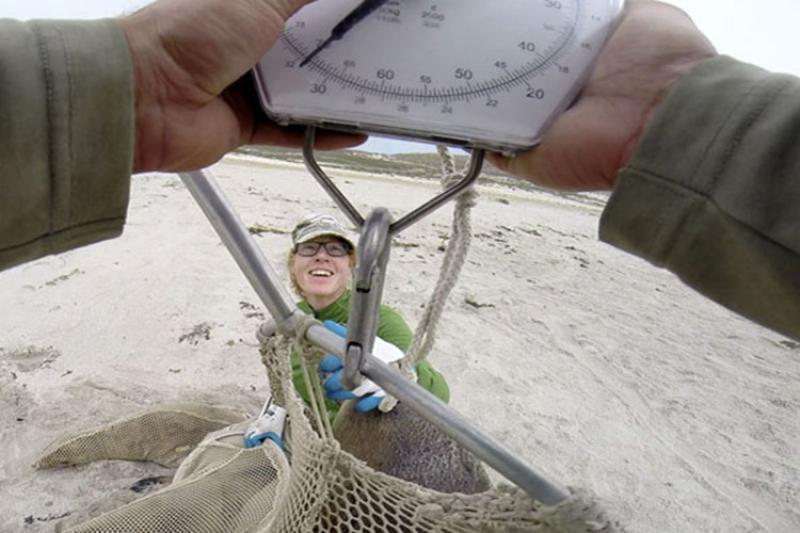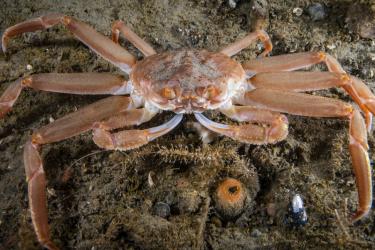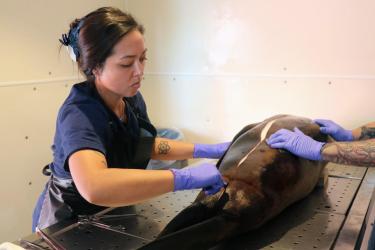For a few months now, sea lion pups have been stranding on the coast of Southern California. So many have washed up, emaciated and exhausted, that marine mammal care centers can scarcely hold them all. But while most people first notice the pups on the beach, their desperate plight began on the Channel Islands, which are about 25 miles offshore of Santa Barbara. Those islands are home to the sea lion rookeries where the pups are born and where they spend the first year of life.
Many pups at the rookeries are going hungry, according to Sharon Melin, a wildlife biologist with the NOAA Fisheries National Marine Mammal Laboratory who recently returned from 3 weeks of fieldwork on the Channel Islands.
In this podcast, Melin explains that unusually warm water along the Pacific coast has sent sardines, anchovies, and other prey species north or deeper in search of cooler water. As a result, sea lion mothers are having trouble finding enough food to nurse their pups.
Many of the pups eventually set off on their own desperate search for food. But the pups, weak and lacking the experience they need to forage on their own, wash up on the mainland instead.
What Should You Do If You Encounter a Sick California Sea Lion on the Beach?
Please contact your local stranding network or local authorities to report a live or dead stranded sea lion.
--Do not touch the sea lion.
--Don’t allow pets to approach the sea lion.
--Observe the animal from a safe distance (safe for you and the animal).
--Sick or dead marine mammals should be reported to the following agencies in California:
- San Diego County Sea World Rescue 800-541-SEAL
- Orange County Pacific Marine Mammal Center 949-494-3050
- LA County Marine Animal Rescue 800-399-4253
- Malibu City Limits California Wildlife Center 310-458-9453
- Ventura County Channel Islands Marine Wildlife Institute 805-567-1505
- Santa Barbara County Santa Barbara Marine Mammal Center 805-687-3255
- San Luis Obispo, Monterey, Santa Cruz, San Mateo, San Francisco, Marin, Sonoma, and Mendocino Counties Marine Mammal Center 415-289-7350
- Del Norte and Humboldt Counties Northcoast Marine Mammal Center 707-951-4722



